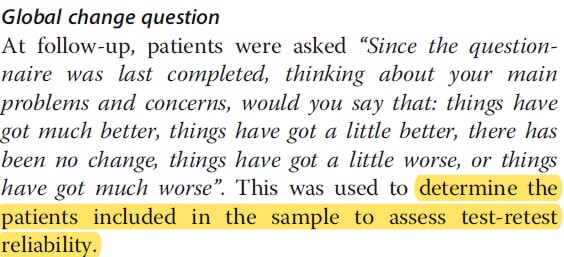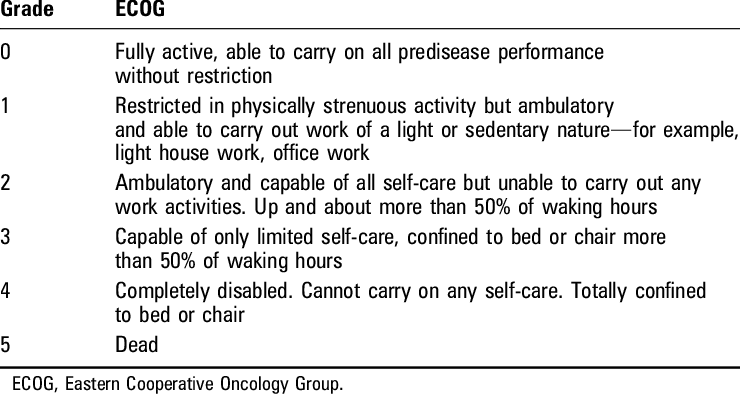Hi, I would like to validate an end-of-life questionnaire, and have some questions to ask regarding measurement properties (1) test-retest reliability and (2) responsiveness.
I understand that (1) assesses the degree to which the participant’s performance is repeatable; i.e., how consistent their scores are across time, I have chosen the time points; week 4 and week 8 for this. And (2) is defined as the ability of a questionnaire to detect clinically important changes over time, I have chosen the time points; baseline and week 4, where patients had a palliative intervention.
In Long et al, they have a global change question, and only patients that indicated “no change” are included for test-retest reliability. In my study, we collected ECOG scores at all time points. Should I only include patients whose ECOG score remained the same across the 2 time points? Or is it okay to include all patients?

Similarly for responsiveness, should I only include patients whose ECOG score remained the same or improved?
Thanks, would appreciate any advice. ![]()
EDIT: included the ECOG scale for reference
